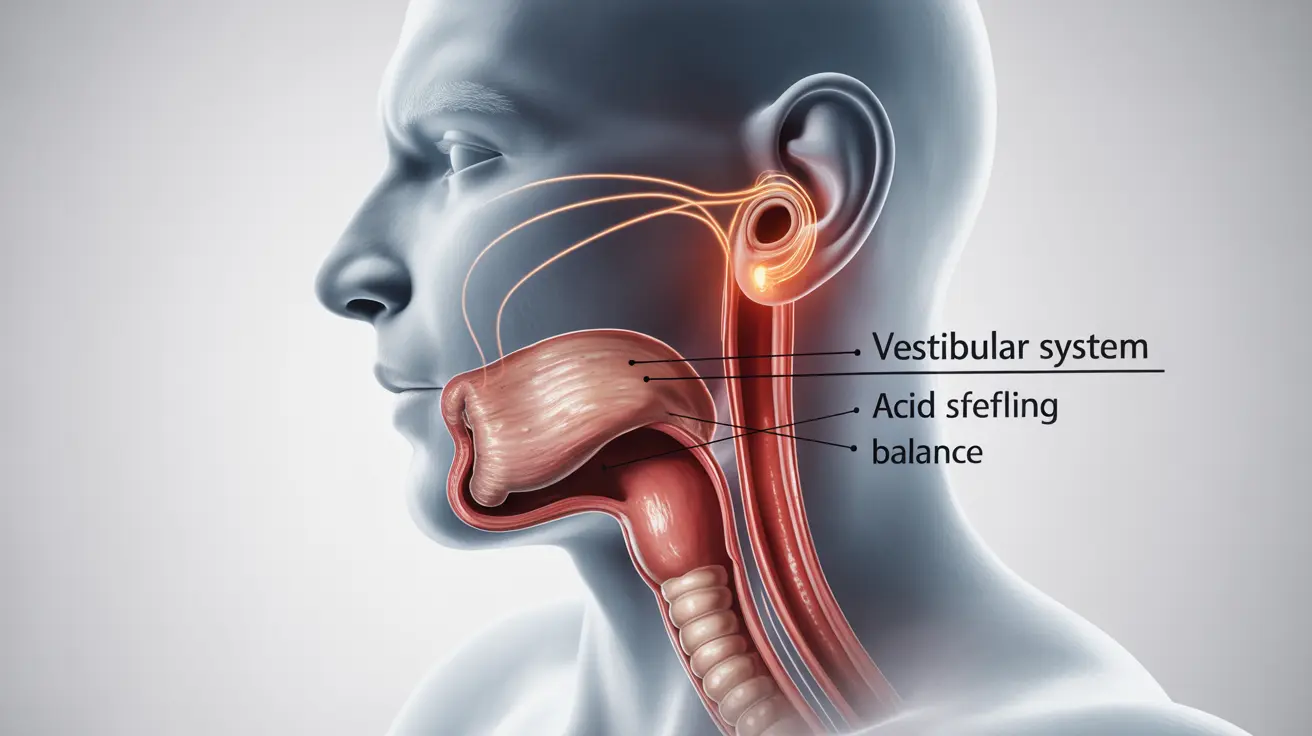Experiencing dizziness alongside acid reflux can be both concerning and disorienting. While many people are familiar with the burning sensation of acid reflux, fewer understand how this digestive condition can potentially lead to feelings of lightheadedness and balance issues. Understanding this connection is crucial for proper diagnosis and treatment.
This comprehensive guide explores the relationship between acid reflux and dizziness, helping you recognize when these symptoms might be related and what steps you can take to find relief.
Understanding the Acid Reflux-Dizziness Connection
Acid reflux occurs when stomach acid flows back into the esophagus, causing various uncomfortable symptoms. While heartburn is the most commonly recognized symptom, the condition can trigger other effects throughout the body, including dizziness.
How Acid Reflux Affects Balance
The inner ear plays a crucial role in maintaining balance and spatial orientation. When acid reflux becomes severe or chronic (GERD), the resulting inflammation and pressure changes can impact the vestibular system, potentially leading to dizziness or vertigo-like symptoms.
Common Symptoms and Warning Signs
When acid reflux is causing dizziness, you may experience several concurrent symptoms:
- Burning sensation in the chest or throat
- Feeling of lightheadedness or unsteadiness
- Nausea or queasiness
- Difficulty maintaining balance
- Pressure in the ears
- Persistent cough
When to Seek Medical Attention
While occasional dizziness with acid reflux might not be cause for immediate concern, certain symptoms warrant prompt medical evaluation:
- Severe or persistent dizziness
- Difficulty walking or standing
- Chest pain or pressure
- Shortness of breath
- Severe headaches
- Fainting episodes
Treatment Approaches
Medical Interventions
Several treatment options can help manage both acid reflux and associated dizziness:
- Proton pump inhibitors (PPIs)
- H2 blockers
- Antacids
- Anti-vertigo medications when necessary
Lifestyle Modifications
Making certain lifestyle changes can significantly improve both acid reflux and dizziness symptoms:
- Elevating the head while sleeping
- Eating smaller, more frequent meals
- Avoiding trigger foods
- Maintaining a healthy weight
- Staying hydrated
- Managing stress levels
Frequently Asked Questions
1. Can acid reflux or GERD cause dizziness and balance problems? Yes, acid reflux and GERD can cause dizziness and balance problems. This typically occurs due to the condition's effect on the inner ear and vestibular system, as well as potential pressure changes in the upper digestive tract.
2. How does stomach acid affect the inner ear to cause dizziness or vertigo? Stomach acid can affect the inner ear through inflammation and pressure changes in the Eustachian tubes, which connect the middle ear to the back of the throat. This can disrupt the vestibular system's ability to maintain proper balance.
3. What symptoms indicate that dizziness from acid reflux might need medical attention? Seek medical attention if you experience severe or persistent dizziness, difficulty walking, chest pain, shortness of breath, or fainting episodes. These symptoms could indicate a more serious underlying condition.
4. What are effective treatments for managing dizziness related to acid reflux? Effective treatments include medication like PPIs or H2 blockers, lifestyle modifications, dietary changes, and proper positioning during sleep. Your healthcare provider can create a personalized treatment plan based on your specific symptoms.
5. How can lifestyle and diet changes help reduce acid reflux and associated dizziness? Lifestyle and diet modifications such as eating smaller meals, avoiding trigger foods, maintaining a healthy weight, and elevating the head while sleeping can significantly reduce both acid reflux symptoms and associated dizziness.
Remember to always consult with a healthcare provider for persistent or severe symptoms, as they can best determine the appropriate treatment approach for your specific situation.




